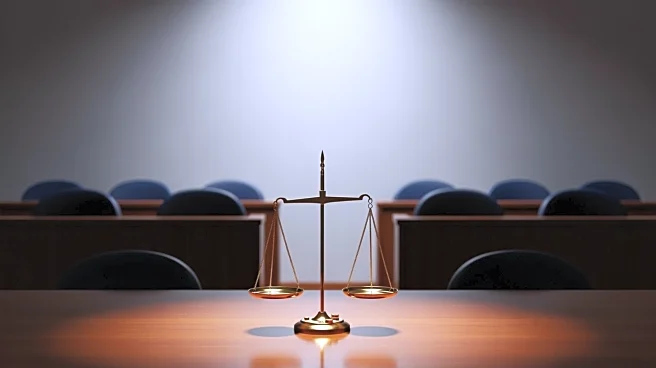What's Happening?
The ongoing government shutdown, which began on October 1, is severely impacting the federal judiciary's ability to function, particularly affecting the Criminal Justice Act (CJA) panel lawyers. These
lawyers, who represent indigent defendants when federal public defenders cannot, have been working without pay for over three months due to a funding lapse. The judiciary is expected to run out of money soon, potentially leading to furloughs of court staff for the first time in decades. Federal public defenders and CJA panel attorneys are crucial for ensuring defendants' constitutional right to representation, but the shutdown has left them without financial support. Some defense lawyers have already filed motions to dismiss criminal charges due to the lack of funding, arguing that the government's failure to pay violates constitutional rights.
Why It's Important?
The funding lapse poses a significant threat to the U.S. criminal justice system, as it could lead to a shortage of available defense attorneys for indigent defendants. This situation raises constitutional concerns, as defendants are entitled to legal representation. The financial strain on CJA panel lawyers, many of whom are solo practitioners or work in small firms, could lead to fewer attorneys willing to take on new cases, exacerbating the issue. The shutdown's impact on the judiciary highlights the broader consequences of budgetary impasses in government, affecting not only legal professionals but also the defendants who rely on their services. The situation underscores the need for stable funding to maintain the integrity of the justice system.
What's Next?
If the shutdown continues, the judiciary may face further operational challenges, including the inability to appoint enough CJA panel lawyers for new cases. This could lead to delays in criminal proceedings and potential violations of defendants' rights. Legal professionals and advocacy groups may increase pressure on lawmakers to resolve the funding issues to prevent further disruption. The judiciary's financial constraints could also prompt discussions on long-term solutions to ensure consistent funding for essential legal services, regardless of government shutdowns.
Beyond the Headlines
The ethical implications for defense lawyers working without pay are significant, as they must balance their professional responsibilities with personal financial challenges. This situation could lead to difficult decisions regarding case management and client representation. The shutdown also highlights the vulnerability of the legal system to political and budgetary conflicts, raising questions about the sustainability of current funding models for public defense.









